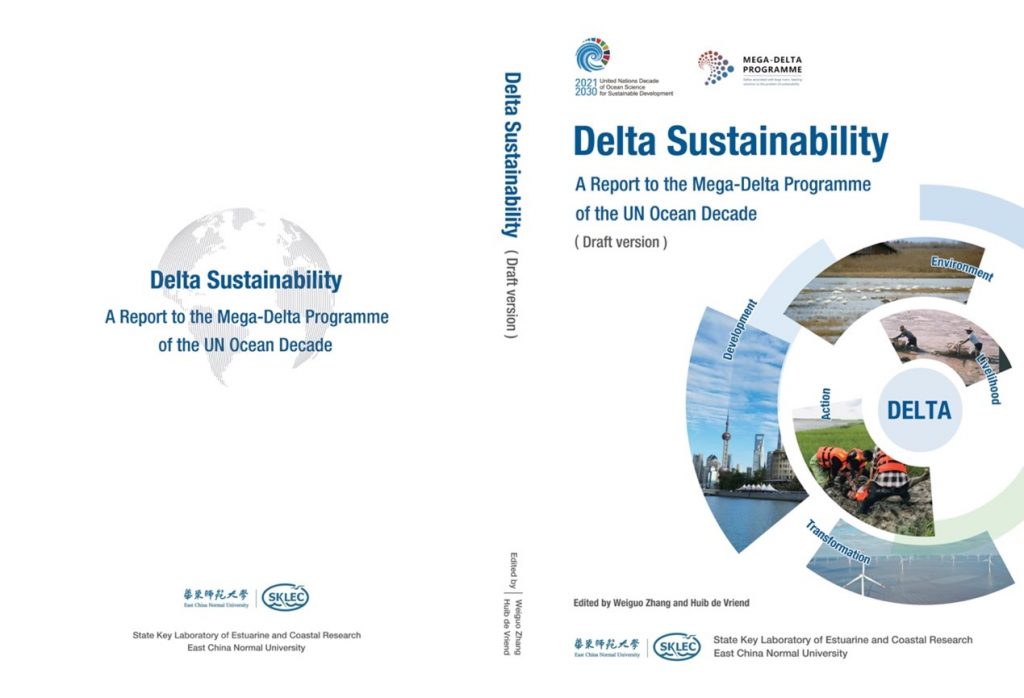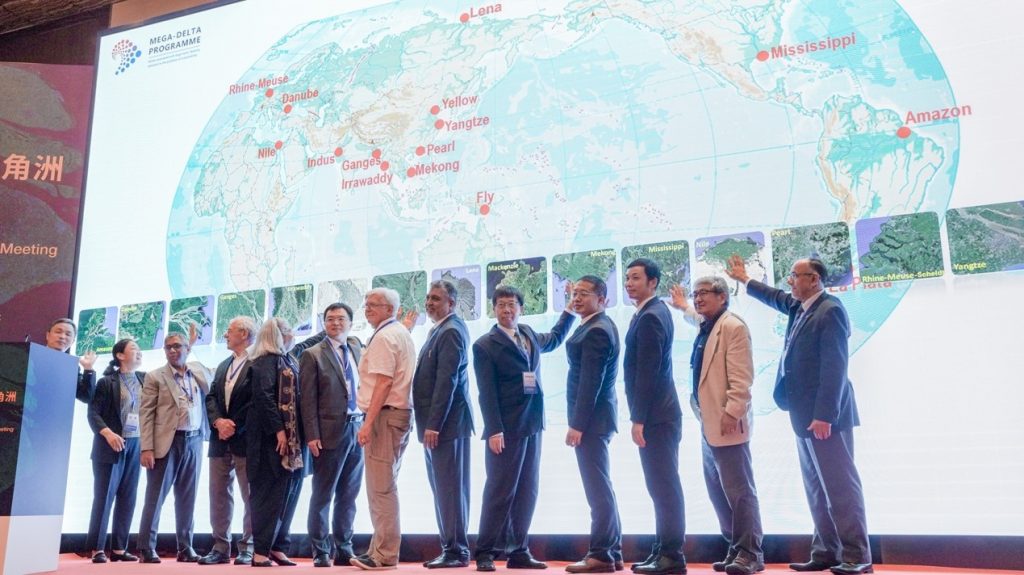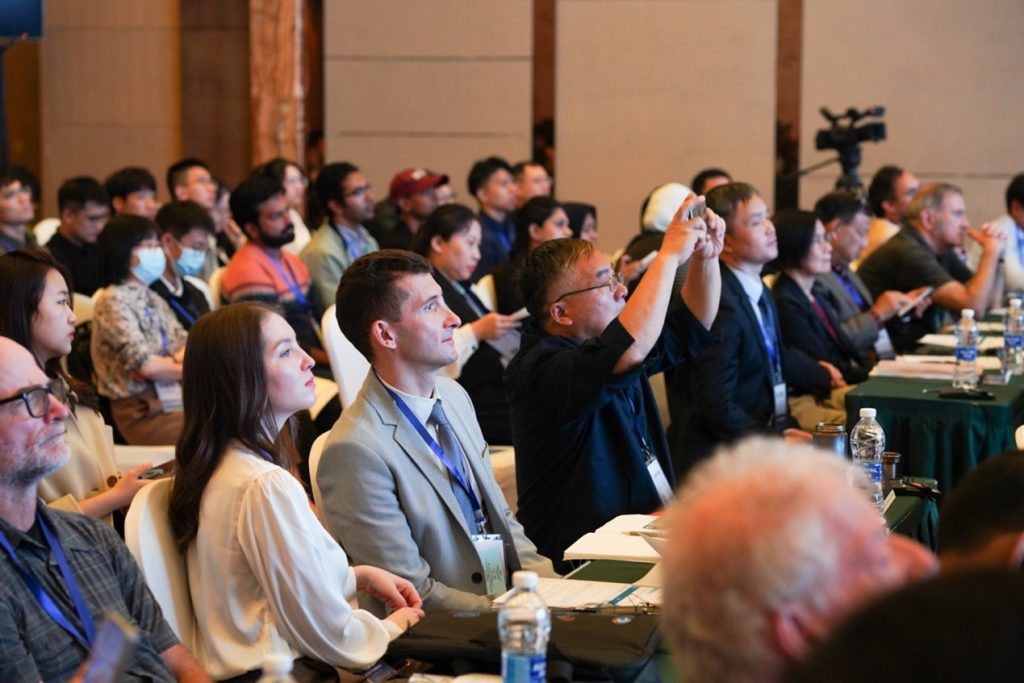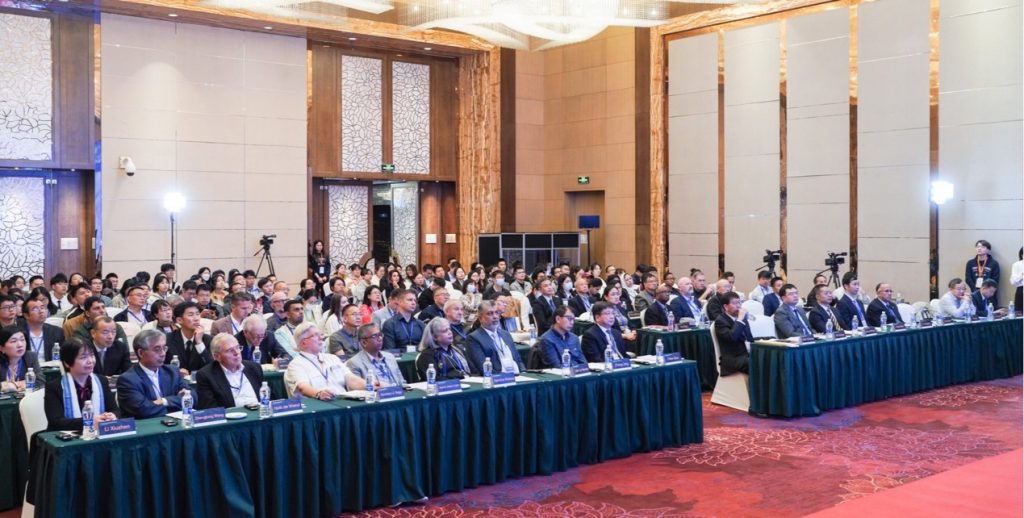IMBeR supports the 2nd International Mega-Delta Meeting. Professor Richard Bellerby, Co-Chair of the IMBeR-FEC Continental Margins Working Group, gave a plenary talk titled “Opportunities from Mega-Delta Research through Cross-Fertilisation with UN Decade Programmes”. More information about the event is available on here.
By: ECNU
November 6th saw the grand opening of the 2nd International Mega–Delta Meeting hosted by ECNU in Shanghai. Under the theme “Delta Sustainability – Seeking Solutions for Sustainable Development”, the conference brought together over 200 experts and scholars from 17 countries, including China, Vietnam, Thailand, Indonesia, Bangladesh, India, Pakistan, Egypt, Tanzania, the Netherlands, Norway, Croatia, Russia, the United States, Chile, Brazil, and Uruguay. The participants engaged in in-depth discussions on research findings from over 20 river delta regions worldwide, offering valuable insights and recommendations for the future development of deltaic areas.
During the opening ceremony, the latest academic achievement of the “Mega–Delta Programme”: Delta Sustainability: A Report to the Mega-Delta Programme of the UN Ocean Decade, was officially released. “Seventy-four researchers from 13 countries contributed to this report, which took two years to compile. The editorial team overcame multiple adverse challenges posed by the COVID-19 pandemic and is delighted to present the report to the public today,” explained Prof. Weiguo Zhang, the lead editor of the Report and professor of the State Key Laboratory of Estuarine and Coastal Research, ECNU.

The Report focuses on 16 representative large river delta regions worldwide, encompassing deltas in different climate zones ranging from tropical to polar, with varying levels of economic development and diverse geomorphic features. The report provides a detailed analysis of five aspects of each delta, including the natural environment, socio-economic characteristics, challenges faced, management measures, and outlook. Based on this analysis, the report distills the overarching sustainable development issues and management challenges confronting deltas globally.

Release ceremony of the latest academic achievement of “Mega–Delta Programme”
The two-day conference featured four sub-forums focusing on Coastal Flooding and Hydrodynamics, Coastal Erosion, Sedimentation, Geomorphic Dynamics, Coastal Zone System Biogeochemistry and Wetland and Coastal Zone Management. Scientists from 17 countries across Asia, Africa, Europe, and North and South America exchanged ideas and insights on the latest achievements in the fields of hydrodynamic sedimentation processes, biogeochemical cycling in deltaic regions, disaster prevention and mitigation strategies, wetland conservation and restoration, as well as sustainable resource utilization, management, and regulation in delta areas. The conference also delved into the implementation of the “Mega–Delta Programme” endorsed by the UN Decade of Ocean Science for Sustainable Development, aiming to address the challenges faced by deltas through multilateral and bilateral cooperation, thereby making valuable contributions to achieving global sustainable development goals for the oceans.

Source: State Key Laboratory of Estuarine and Coastal Research
Author: Wicky Xu
Editor: Philip Nash
